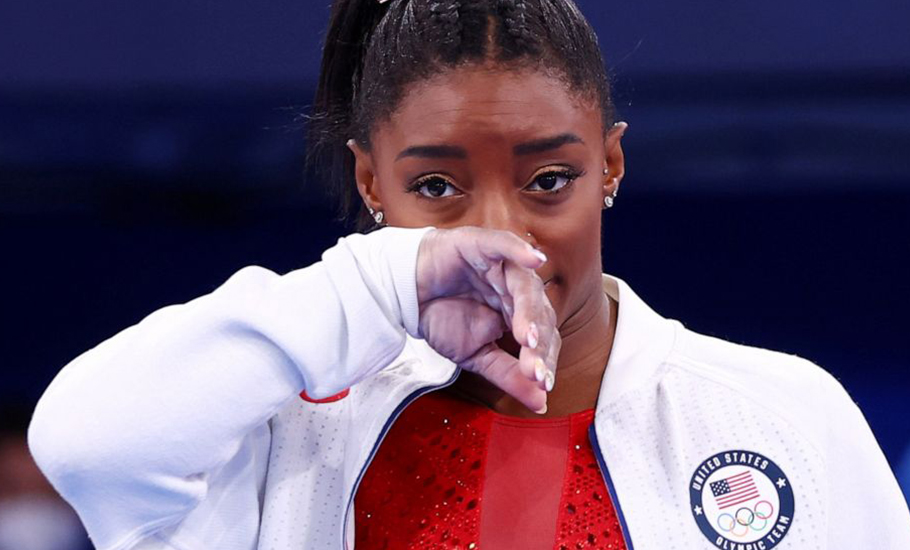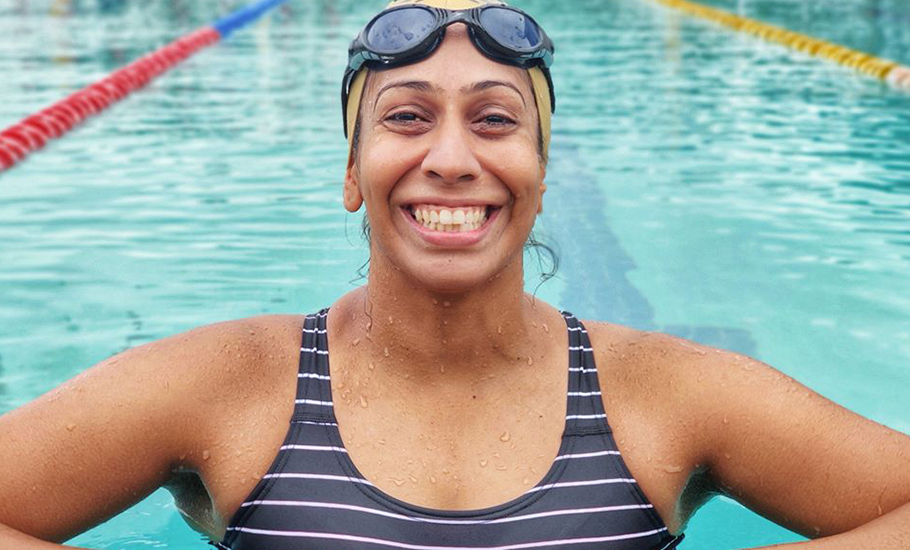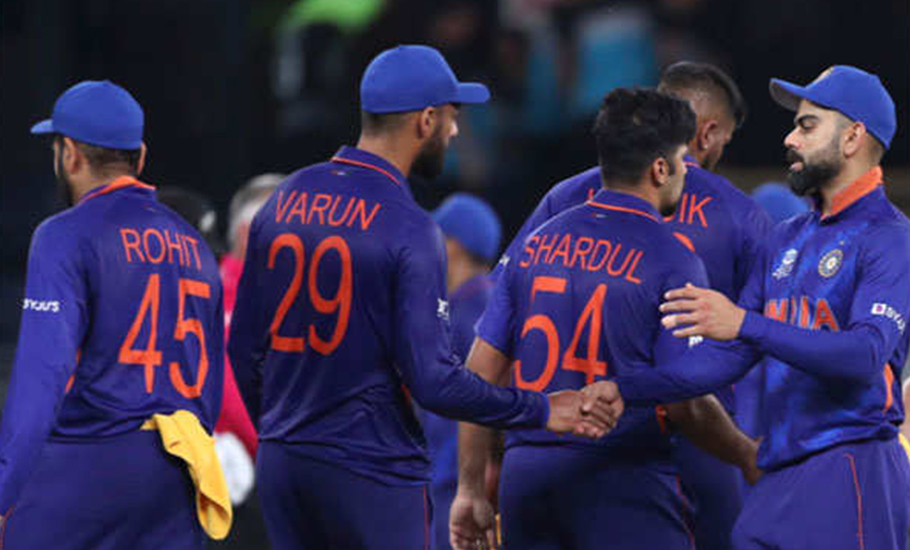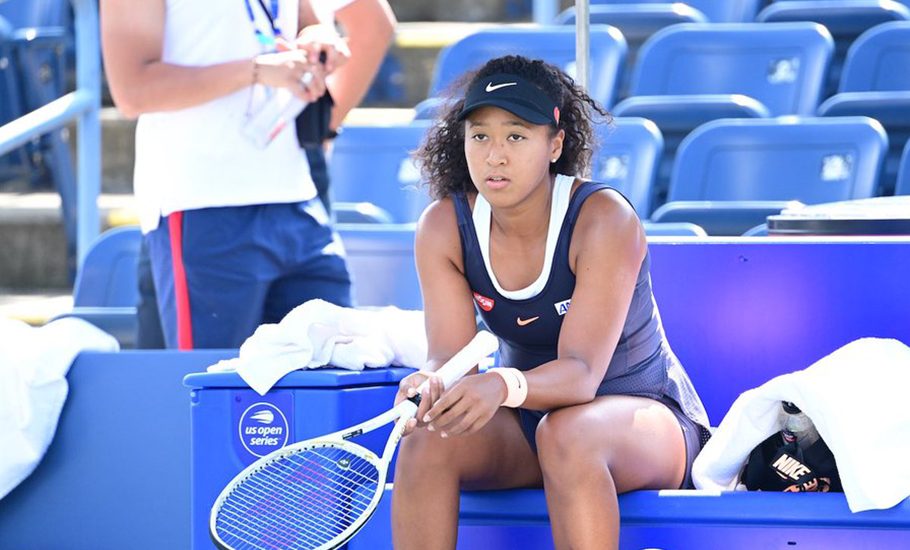
- Home
- India
- World
- Premium
- THE FEDERAL SPECIAL
- Analysis
- States
- Perspective
- Videos
- Sports
- Education
- Entertainment
- Elections
- Features
- Health
- Business
- Series
- In memoriam: Sheikh Mujibur Rahman
- Bishnoi's Men
- NEET TANGLE
- Economy Series
- Earth Day
- Kashmir’s Frozen Turbulence
- India@75
- The legend of Ramjanmabhoomi
- Liberalisation@30
- How to tame a dragon
- Celebrating biodiversity
- Farm Matters
- 50 days of solitude
- Bringing Migrants Home
- Budget 2020
- Jharkhand Votes
- The Federal Investigates
- The Federal Impact
- Vanishing Sand
- Gandhi @ 150
- Andhra Today
- Field report
- Operation Gulmarg
- Pandemic @1 Mn in India
- The Federal Year-End
- The Zero Year
- Science
- Brand studio
- Newsletter
- Elections 2024
- Events
- Home
- IndiaIndia
- World
- Analysis
- StatesStates
- PerspectivePerspective
- VideosVideos
- Sports
- Education
- Entertainment
- ElectionsElections
- Features
- Health
- BusinessBusiness
- Premium
- Loading...
Premium - Events

Sports psychology: Why India is far from the finish line

In the run-up to the 2000 Sydney Olympic Games, when a barely 18 years old Indian swimmer decided to consult a sports psychologist, many back home were worried “if all is well with Nisha Millet”. Back then, sports psychology was unheard of in India. However, in Australia, sports institutes had programmes that included strength and conditioning coaches, physiotherapists and...
In the run-up to the 2000 Sydney Olympic Games, when a barely 18 years old Indian swimmer decided to consult a sports psychologist, many back home were worried “if all is well with Nisha Millet”. Back then, sports psychology was unheard of in India. However, in Australia, sports institutes had programmes that included strength and conditioning coaches, physiotherapists and sports psychologists.
“People were concerned about me to a point where they would enquire if I was doing alright. But I had gone to consult a sports therapist because I wanted to feel mentally stronger,” says Millet. It was the qualifying round and no one had qualified from India back then, so there was a lot of pressure on the 18-year-old. “Consulting a therapist really helped me,” the celebrated swimmer tells The Federal.
Even two decades later, India, a country notoriously oblivious and insensitive to the mental health crisis in general, is only beginning to realise the importance of sports psychology.
The mind game
Dr Shree Advani, sports and performance psychologist, believes India is two to three decades behind the West when it comes to incorporating sports psychology into an athlete’s all-around development.

“When we see a nation of 1.3 billion being represented at a quadrennial event, and a bronze medal is enough to make all of us feel elated, it just goes to show we have set our standards pretty low. We don’t have faith in ourselves to go the extra mile, which stems from low self-belief,” he says.
To the dismay of a whole lot of athletes, sports psychology is still not the ‘pop approach’ to improve performance, unlike in the West when it became the talk of athletes’ locker rooms as far back as in the late 1980s. Everyone – from coaches, athletes and sports psychologists – believed that the real difference between winning and losing is largely a mental edge.
Despite all the strides, the world is still insensitive towards the mental well-being of sportspersons and their struggles with it.
Every time a player decides to take a break from their game to focus on their mental health, it opens a can of controversies and conspiracy theories. When tennis superstar Naomi Osaka skipped a post-match press conference during the French Open in May this year citing mental health concerns, she was fined $15,000. She later withdrew from the Grand Slam. In June, she pulled out from Wimbledon to take “personal time”. She confessed to suffering from depression since winning the US Open in 2018.
Unlike many in the media and tournament organisers who lashed out at her for not honouring her contractual media obligations, Osaka was praised by fellow athletes for prioritising her mental health over everything else.
The recent Tokyo Olympics further shifted the narrative and opened the conversation after US gymnast Simone Biles pulled out of multiple finals citing mental health issues.
While fellow Olympians supported her and acknowledged some of their own struggles, Biles and Osaka certainly aren’t the first ones to open up about struggles with mental health.

In India, just after the Tokyo Olympics, wrestlers Vinesh Phogat, Anshu Malik, Sonam Malik, silver winner Ravi Dahiya and bronze medallist Bajrang Punia spoke about the need for a sports psychologist to be attached with the national team.
Need for sports psychologists in India
Two decades after her Olympic campaign, Millet strongly advocates taking a more medically sound approach to personal care. After retiring from competitive swimming, Millet coached for a while and now runs an academy. She lost one of her swimmers to death by suicide earlier this year, which has deeply affected Millet. “She was only 16. After that loss, I realised sports psychology is something I want to pursue. I have been doing a course in it and will be a certified counsellor soon. I have a background in psychology from college anyway. I believe this is something our athletes need, especially in the post-COVID world,” she says.

Both Millet and Advani agree that sports counselling should be accessible to athletes of all ages. “My youngest athlete was seven years old when he started working with me. I was a little apprehensive at first but it has been a learning experience for me as well. The child is now 10 and playing phenomenal golf. The reason behind it is not just his physical fitness but the incredible amounts of trust he has in his abilities. So, I think the younger the better, not just physically but mentally as well,” Advani adds.
Millet also sheds light on the struggles of athletes post retirement. “Athletes don’t typically work on mental health even after their retirement but that is when they need it the most. They have absolutely no help in terms of coping with not being in the sport anymore and therapy can help them adjust to normal life,” she says.
Mental well-being depends on various factors and the anxiety and stress are not necessarily about losing.
Olympic gold medallist Abhinav Bindra, who announced his retirement from shooting in 2017, earlier in the year opened up about his encounter with mental health issues right after winning the gold medal at the Beijing Games in 2008.
He said he even wanted to quit shooting after 2008. “It’s ironic my biggest mental crisis in life came when I actually succeeded. A lot of people talked about dealing with failure, but for me, dealing with success was probably the hardest time in my life,” he was quoted as saying in a PTI report.
“Up until Beijing where I had my greatest victory, I had trained for 16 years of life with a singular goal and singular obsession that I wanted to win a gold medal at the Olympics. One fine day, this dream, the goal was achieved but it created a very large void in my life.
I think that was very challenging. I was depressed and was lost. I did not know what to do with my life and what to do next. That was probably the toughest moment of my life.”
Pressure on athletes and coaches
Rajalakshmi Prerana, table tennis player who also represented Karnataka in volleyball for five years, says parents and coaches create an incredible amount of pressure on athletes that adversely impacts their performance.
“I too am a parent and my child started playing at the age of six. I feel guilty at times that I did not let him take part in other fun activities. We tend to create an environment of pressure around the players. Imagine the kind of pressure the Olympians must be facing,” says Prerana.
According to Prerana, this can be a vicious cycle. “The coach’s prospects depend on the athlete’s performance. So, the coach puts pressure on the player’s parents and the athlete. Parents put pressure on the child because they have invested money in their child’s playing career. All this results in the athlete losing half their personality.”
“We as behavioural trainers have seen an athlete’s personality severely change for the worse after working with a certain coach for one or two years,” she adds.
There is also a thin line between coaching and mentoring. Coaches are not supposed to tell you how to do certain things, but what to do. The athletes should figure out the way that suits them best. “I’m not sure how good our coaches are at this. Many haven’t even received training in coaching. They were good performers in their own right but does that make them capable coaches?”
Advani feels coaches could be a bit too proud to admit they need help with their mental health. “Most of the coaches in India, even some of the top names, don’t talk about sports psychology because they like to believe that they can handle that part. Maybe it was true a few decades ago but now sports are a lot more competitive. Every country is looking for specialised professionals and India needs to start approaching it that way.”
However, this chasm created by the absence of sports psychologists isn’t just affecting athletes in individual sports, but teams as well.
After India’s unsatisfactory performance at the ICC T20 World Cup, questions were raised over the Board of Control for Cricket in India’s (BCCI) inability to provide a sports therapist for the players, unlike team England’s Dr James Bickley. Not too long ago, skipper Virat Kohli revealed that he battled depression during a harrowing tour of England in 2014 where he felt like the “loneliest guy in the world”.

In 2019, Indian women’s cricket captain in T20s, Harmanpreet Kaur, also urged the BCCI to appoint a psychologist for the team.
“It is absolutely pertinent that the BCCI appoints a sports psychologist. For now, I think having Rahul Dravid as the coach is the closest thing they can get to help the players on the mental aspect without having a specialist. The team has had success with Paddy Upton as a mental coach during the 2011 World Cup, so I fail to understand why, a decade later, we’ve regressed and gone back to managing without one,” wonders Advani.
Apart from cricket, the need for a mental coach for hockey and football players has also been felt more often than not. Football veteran Bhaichung Bhutia has been emphasising the need for a sports psychologist for footballers, especially those who move to big cities from small towns to cope with the sudden lifestyle changes and pressure.
Former goalkeeper Kalyan Chaubey agrees and says his position on the pitch has always been more of a mental game than physical. “During our time, we didn’t have access to a sports psychiatrist. But then, famed footballer and coach PK Banerjee’s ‘vocal tonic’ was very popular for helping players work on their mental fitness,” Chaubey, who has played for both East Bengal and Mohun Bagan, tells The Federal.
But things seem to be changing, even if slowly. The All India Football Federation recently revealed that every Indian football team from the U-17 to the Senior team (both men and women) now have a team psychologist, as a mandatory measure.
Back in Chaubey’s days, he and others had to rely either on themselves or their coaches for motivation. “I used to read books by Swami Vivekananda and practice meditation to keep myself motivated. Sometimes my coaches helped too. I was fortunate to play under PK Banerjee’s guidance for around eight years.”
Former gymnast Anjum Padyal, however, wasn’t so lucky in terms of a coach. “My coaches never helped me. They just scolded and howled at us. Nobody was there to give us motivational or pep talks,” says Padyal, associate professor, Department of Physical Education and Sports Sciences, Deshbandhu College, Delhi University.
Coach vs sports psychologist
The fact that even a coach’s persistent but unscientific approach isn’t enough to motivate young players is well portrayed in the multiple Emmy-award-winning Apple TV show Ted Lasso. It’s about an American football coach, Ted Lasso (Jason Sudeikis), who moves to England to coach a Premier League soccer team, even though he doesn’t know how soccer works. In the second season, mental health becomes a key theme as the team hires a sports psychologist who not just helps players but even Ted. It turns out that Ted’s constant positivity is a result of unresolved issues from his childhood.
Also, a coach is a coach, can they replace a sports psychologist? Just as Padyal and Prerana point out, often the pressure to achieve goals can negatively influence an athlete’s psychological health. Athletes work hard and follow a special food regime to maintain their bodies and stamina. However, pre-match preparations in India often ignore the mental side.
Talking about her experience when she was appointed the observer for the Indian contingent in Asian Indoor Games 2005, Padyal says, “When I was appointed to observe the team, it was already too late. I did what I could but we need to realise mental health training can’t be done at the last minute.”

Unlike what movies show, a player’s mental health needs to be taken care of well before the tournament commences, Padyal says, reminding us of the famous ‘70-minutes’ pep talk by Shah Rukh Khan in Chak De! India as the coach of an underdog Indian women’s hockey team that goes on to win the World Cup under his guidance.
Sumiran Tandon, another sports psychologist, agrees with Padyal. “The time before important tournaments and matches should only be reserved for practice and revision. If you tell a player to change their playing style right before a competition, it can completely throw them off their game. This could prove fatal for the team as well,” said Tandon.
On the bright side, both Millet and Advani feel things are changing for the better. “There is a change in the mindset of Indians now. Almost every day, I get new inquiries because players realise that this is truly the missing link in their overall growth and development,” adds Advani.
